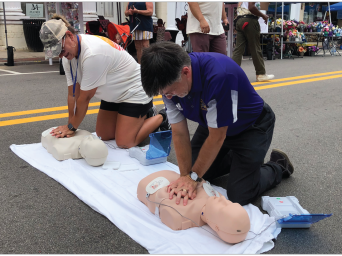Medical Xpress: Bystander CPR up to 10 Minutes After Cardiac Arrest May Protect Brain Function
The sooner a lay rescuer (bystander) starts cardiopulmonary resuscitation (CPR) on a person having a cardiac arrest at home or in public, up to 10 minutes after the arrest, the better the chances of saving the person's life and protecting their brain function, according to preliminary research to be presented at the American Heart Association's Resuscitation Science Symposium 2024.
"Our findings reinforce that every second counts when starting bystander CPR and even a few minutes delay can make a big difference," said Evan O'Keefe, MD, the study's first author and a cardiovascular fellow at Saint Luke's Mid America Heart Institute and the University of Missouri-Kansas City. "If you see someone in need of CPR, don't dwell on how long they've been down, your quick actions could save their life."
The study analyzed nearly 200,000 cases of witnessed out-of-hospital cardiac arrest to determine whether initiating CPR within different time windows, compared to outcomes with no bystander CPR administered, made a difference in survival and brain function after hospital discharge.
Read the full Medical Xpress article: Bystander CPR up to 10 Minutes After Cardiac Arrest May Protect Brain Function

